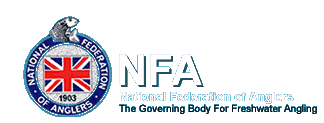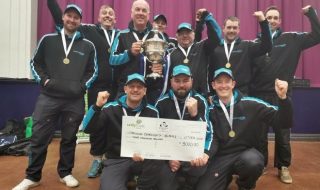![]()
Windermere, Ambleside and District AA is one of the first angling clubs in the country to roll out the new Level One Coaching Certificate with 16 applicants starting the course recently in Kendal, Cumbria.
The new course which has been developed in partnership between the NFA, Salmon & Trout Association and The National Federation of Sea Anglers is a major advance in opening the sport up to more young people and developing the infrastructure of angling.
Windermere, Ambleside and District AA are using the Level One Coaching course to assist in the development of their South Cumbria Kingfishers angling participation project which ultimately aims to promote the sport to a new band of youngsters. The club were able to access grants to cover the whole costs of the course through Awards for All and the Every Child Matters – Local Network Fund.
Julian Taylor, NFA Angling Development Officer states “I have been working with this club for over a year now on their forward development plan and assisting them with Clubmark accreditation. They identified that the biggest barrier to their growth was a lack of qualified coaches in the area. Not only to assist with their programme of coaching activities but to also help deliver our new educational course ‘An Introduction to Angling & the Environment’ in the classroom. The course is now high in demand as schools are looking for alternative and original ways to educate children. By engaging with youngsters in these schools they will increase the awareness of their club and coaching programme, bringing more youngsters into our sport.”
The feedback after the first day of the course held at Windermere has been very positive with a number of attendees stating,
Ken Harrison, Level One Candidate
“I thought I’d struggle with the paperwork, it’s a long time since I was at school, but in fact it was all straightforward and easy to follow.
Christine Lowe, Level One Candidate
“I liked the approach and the emphasis on keeping things short and simple. There were lots of useful tips to help with your coaching and I’m looking forward to putting them into practice.”
Bob Carlson, Level One Candidate
“I’ve done a fair bit of coaching over the years but was increasingly aware that I should really have some form of qualification – and in particular a better understanding of child protection issues.”
Dave Helm, Level One Candidate
“A lot of the course content you already know – but the format and actually talking it through starts to put it all into context.”
They are one of the first clubs to put candidates through the course. The NFA will be running further courses around the country in the coming months. The course is available to anyone who has an interest in angling and has a very basic understanding of the techniques involved with the sport. Anyone interested in learning to coach angling can find further details of the coaching course & application form available for download from the coaches section of the NFA website: www.nfadirect.com.
Level One Coaching
The aim of the Level One Coaching course is to create more qualified anglers who can actively assist Level Two coaches in delivering angling to young people and help provide youngsters with the skills to become the anglers of tomorrow.
The course provides you with an introduction to the principles and practices of coaching safe and ethical angling activities to adults and young people. You will develop an understanding of how to deliver aspects of coaching sessions, normally under direct supervision of more qualified coaches.
The L1CCA is a vocational qualification and provides you with an opportunity to study and be assessed for both the practical and theoretical aspects of coaching angling. The certificate qualifies you to deliver coaching activities, assisting other more qualified coaches in the coaching of the skills and techniques of angling to adults and children. The qualification can be used to generate evidence for a Level 1 N/SVQ in Sport and Recreation, and other vocational coaching qualifications.
The L1CCA has also been matched to the UK Coaching Certificate (UKCC) Level 1 Qualification guidance and will be a component of the JADB’s UKCC-endorsed coach education programme.
Coaching Angling, whether in an employed or voluntary capacity, is a rewarding and responsible role. The sporting community has expectations of coaches’ conduct and behaviour that must be understood and supported by everybody. Coaches’ behaviour is governed by the JADB Angling Coaches Code of Conduct. A copy of which is provided for reference during your achievement of the qualification.
We will begin to roll out the new course from over 2007 and are making it a prerequisite that all coaches undertake the Level One first before progressing to the Level Two qualification. Coaching has a big part to play in the development of the sport and the Level One provides a step onto that coaching ladder.
National Federation of Anglers
The sport of angling is recognised by Sport England and the Government as offering key benefits to society through participation in a healthy outdoor activity. As anglers we already know how our sport helps us to unwind from the stresses of everyday life and enjoy the pleasures that our countryside provides.
We also play a key role in the conservation of our rivers and lakes as we are often the first to notice water pollution and fish disease. It is through our efforts that we help to safeguard the environment in which our sport takes place, and protect the very existence of our sport.
Angling caters for every cross-section of the community irrespective of age, gender, race, physical ability, mental ability or social standing. Through our pro-active coaching and development programmes we are helping to educate youngsters about the skills required in everyday life, as well as the current issues that affect our sport and how they can participate and contribute to the development of angling.
By joining the NFA you are supporting our work which promotes and protects your sport. It is only through adopting a collective stance that we can highlight the issues that threaten the development of angling as a modern and vibrant sport.






